This thread is here to answer many questions about Coffeelake 8700K and Z370 in a quick and fast manner showing a lot of testing to prove bullet points.
Just to clarify so I don't need to type it 100 times non AVX stress testing for me is one hour Prime version 25 or 26 and one hour Real Bench.
All screenshots using AsRock Taichi as the board are when I had an early Bios with a poor LLC curve. So CPUZ reading 1.45 is actually 1.4v under heavy load. Later Bios fixed this issue.
Screenshots with Maximus 10 Hero are correct CPUZ voltage to what was actually being used.
Benches are Real Bench, Terragen, Cinebench R15 and Firestrike.
Overclocking 8700K on low end Air Cooler like Cooler Master EVO 4.7-4.8ghz is possible on average silicon this is because max voltage you can use for non avx stress testing is around 1.225v before temps are late 80 degree C using stock TIM. Cache and mems cant really be pushed on this type of cooling as SA IO volts add to heat output. Cache really goes high on 8700K but in my testing only with voltages around 1.35v+ which is not possible on this type of cooler.
Overclocking 8700K on 240mm AIO like Asetek 240mm 4.8-4.9ghz is possible on average silicon this is because max voltage you can use for non avx stress testing is around 1.28v before temps are late 80 degree C using stock TIM. Cache and mems cant really be pushed on this type of cooling as SA IO volts add to heat output. Cache really goes high on 8700K but in my testing only with voltages around 1.35v+ which is not possible on this type of cooler.
Overclocking in general
Core - In my testing of many retail CPUs I have found 8700K core OC to be very similar to 7700K OC on the same cooling. If its better its only 100mhz absolute tops better.
Cache- In my testing Cache is better on the 8700K compared to 7700K by at least two ratio. When you can use higher voltages with delid of 1.35v+ then Cache on these CPU can go 4.8-5ghz which improves the efficiency in many tasks equivalent to upto 200mhz CPU clocks. Most 7700K with similar voltages and stress testing liked cache a good 400mhz less.
Memory- Memory OC is very much the same as Z370. 4 Dimm boards are topping out 3866-4000mhz. Good Samsung IC on certain boards doing a little better with good IMC on an Individual CPU. 2 DIMM boards can hit 4266mhz stable without issue but this was the same on Z370. I recommend 8Pack Team Group range as they are all Samsung based IC and can clock very high at tight timings. With even 3200mhz Bin being able to do 3866mhz- 4K C18-C19 in many cases.
Many vendors have SA and IO voltages set too high for compatability with the worsed IMC's this adds to temperatures and is unnecessary. I suggest 1.05-1.125v for 3200mhz , 1.10-1.15 for 3600mhz and upto 1.2v for 4000mhz. Of Course some IMC need higher for stability but this will cost 3-6C in Core temps. So pay attention to these voltages and tune accordingly.
IPC 8700k vs 7700K
I set the CPUs to the same clocks, 1c 2t and let them rip in several benches:
8700K IPC
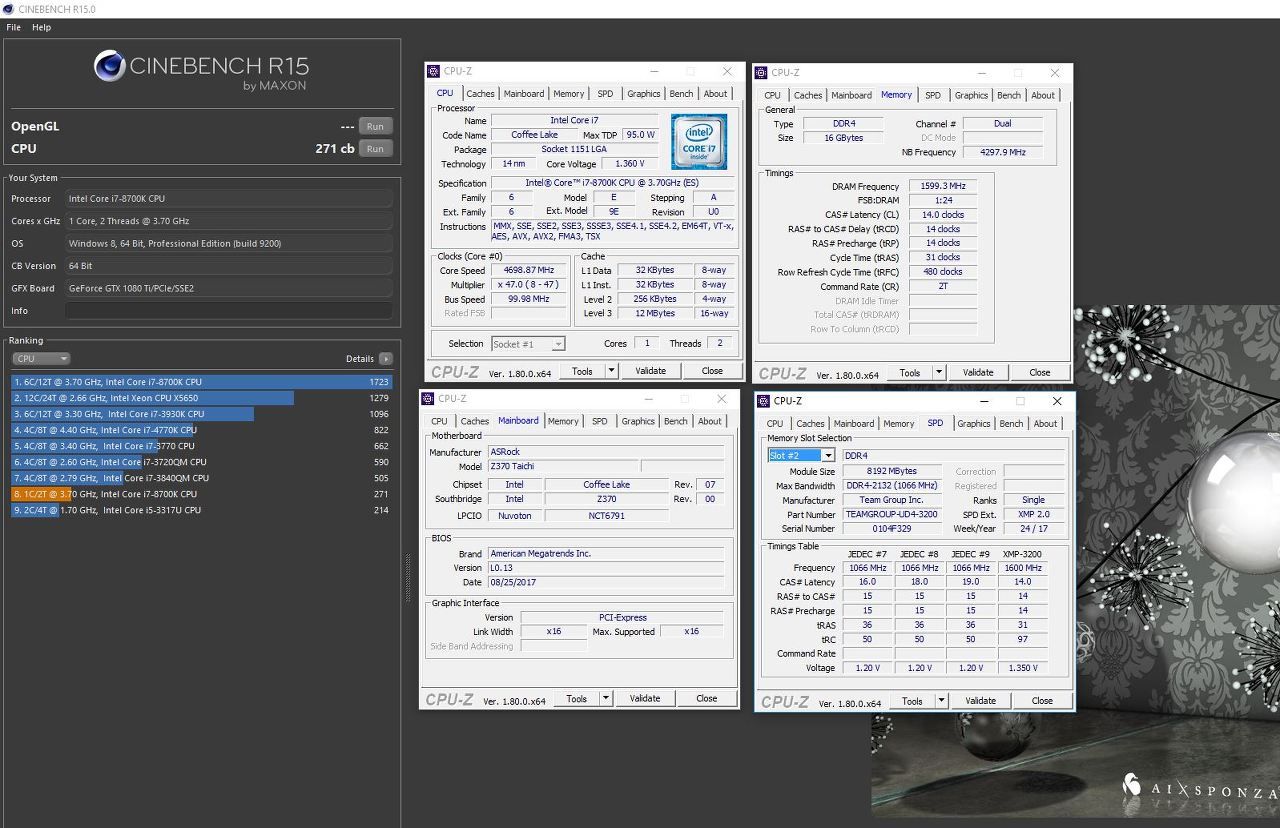
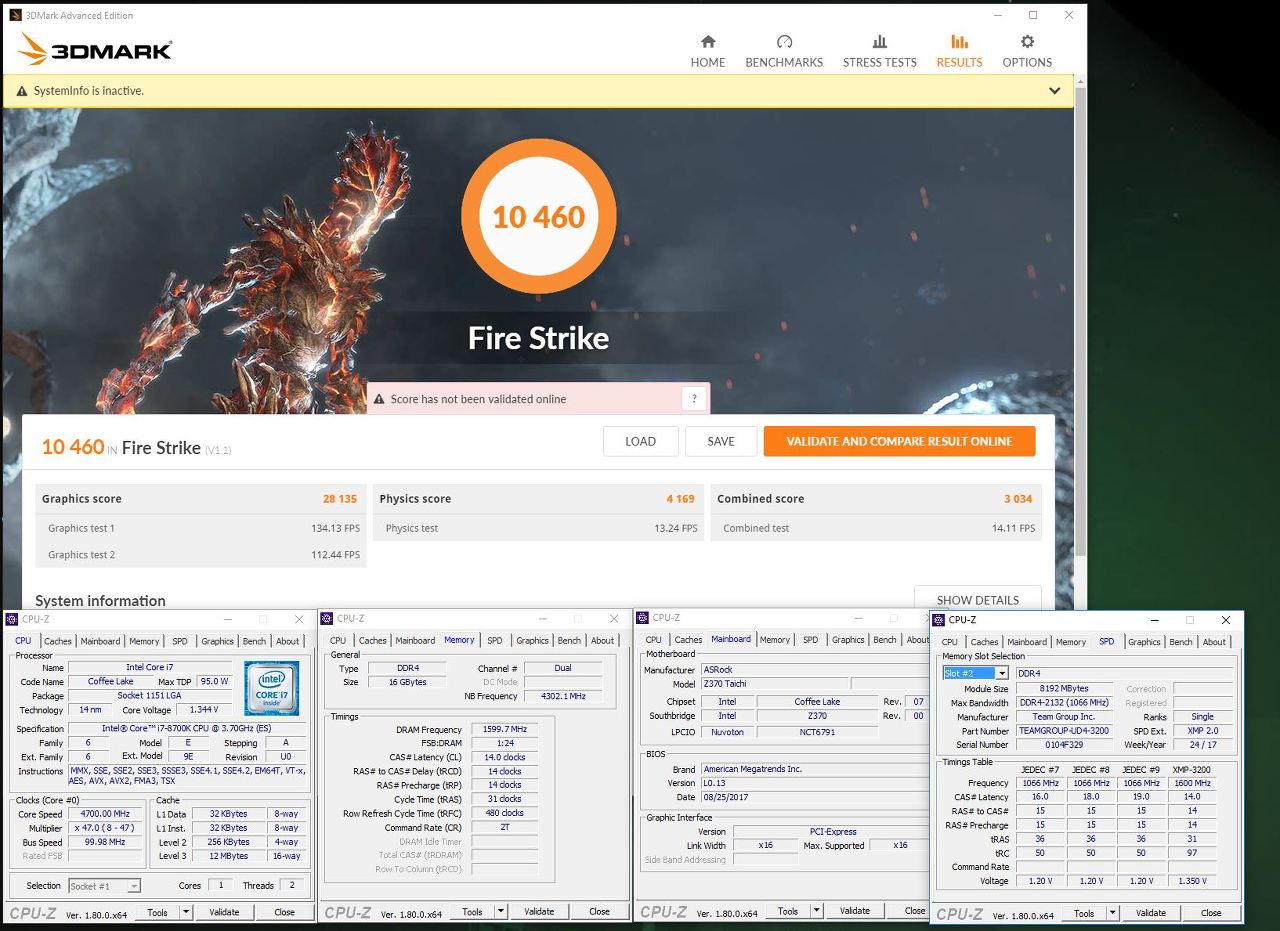
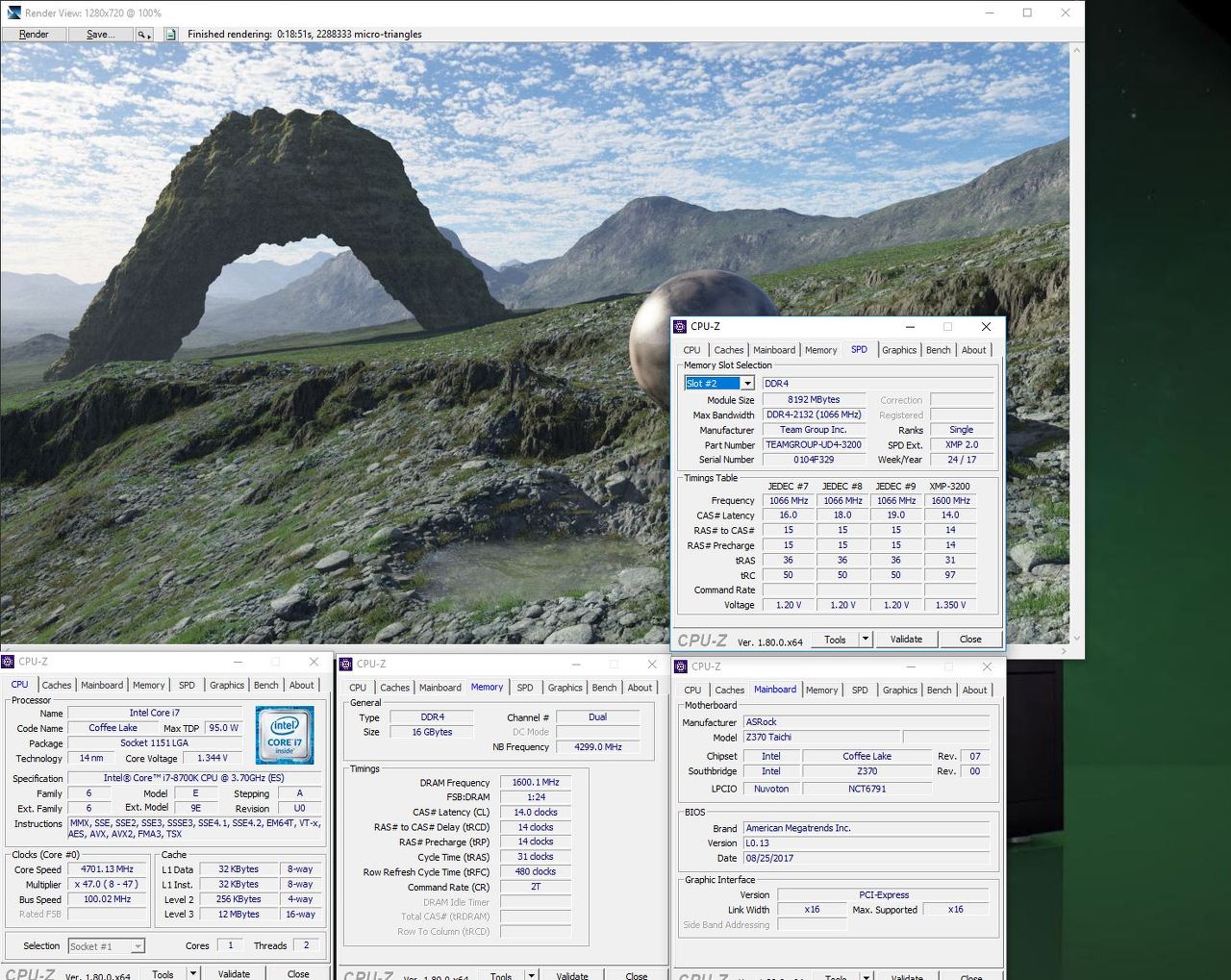
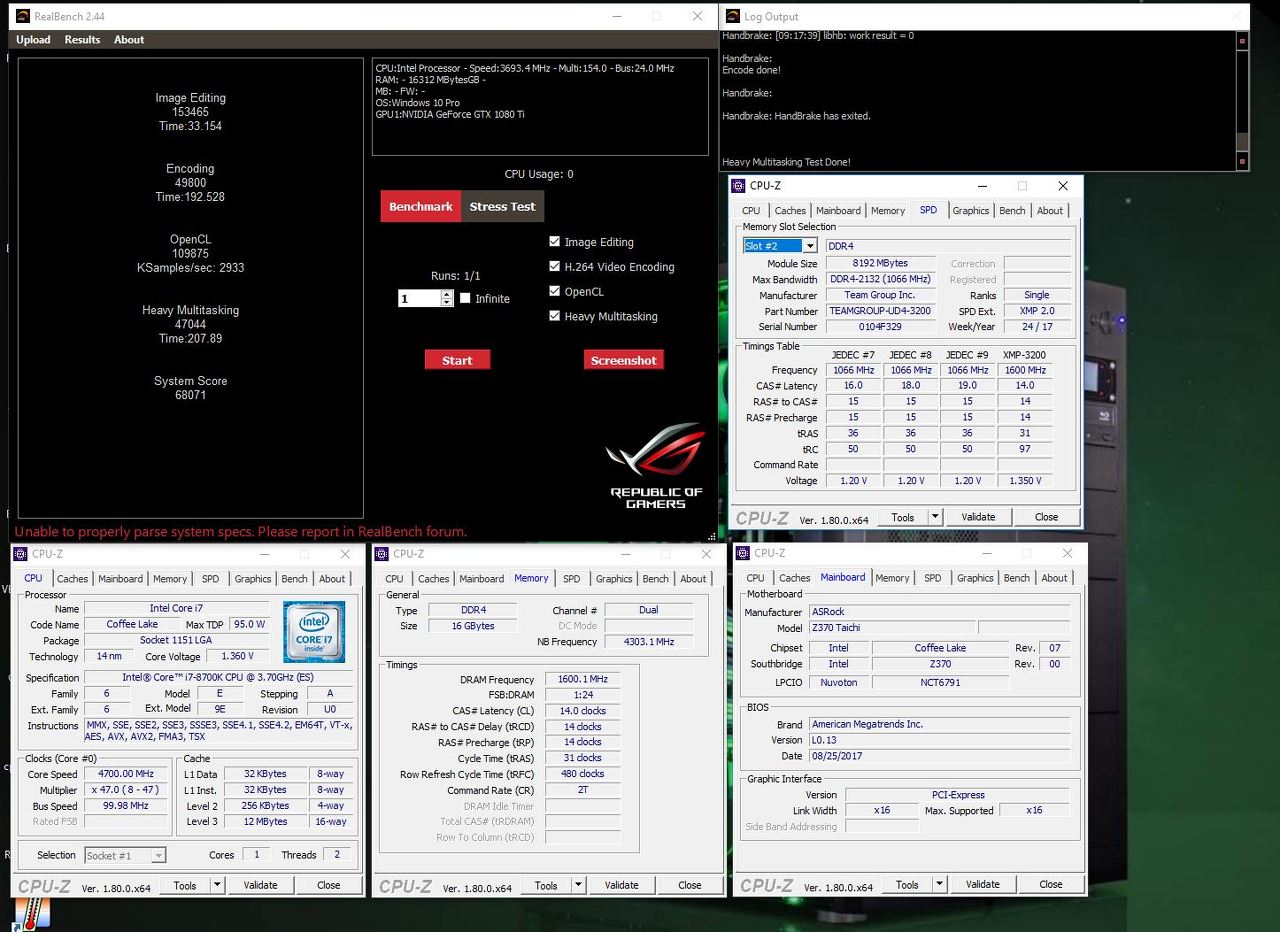
7700K IPC
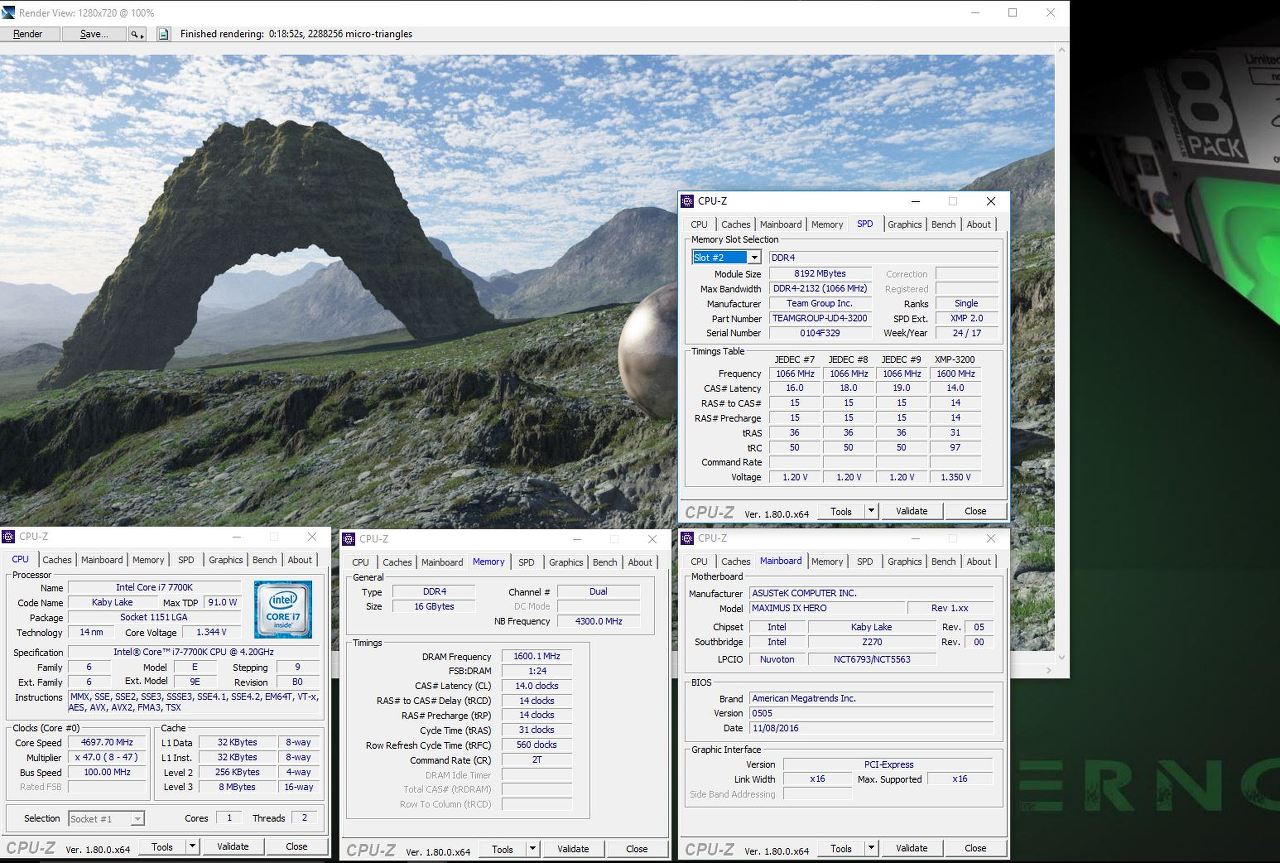
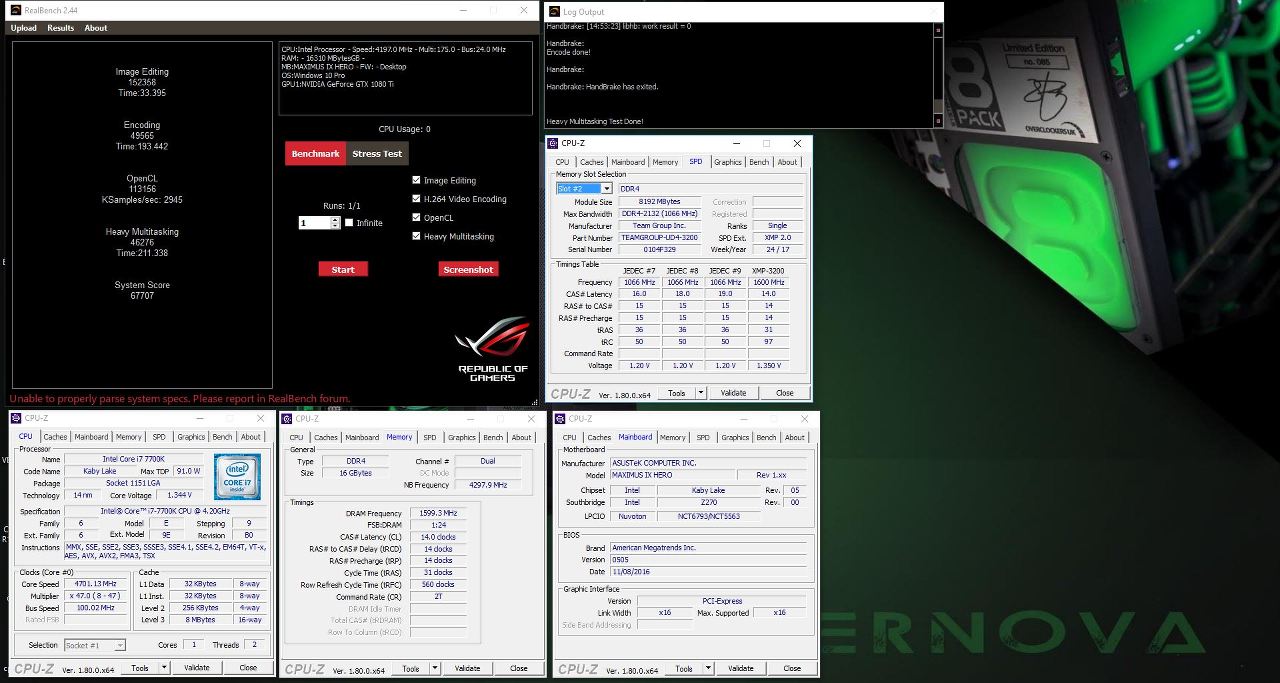
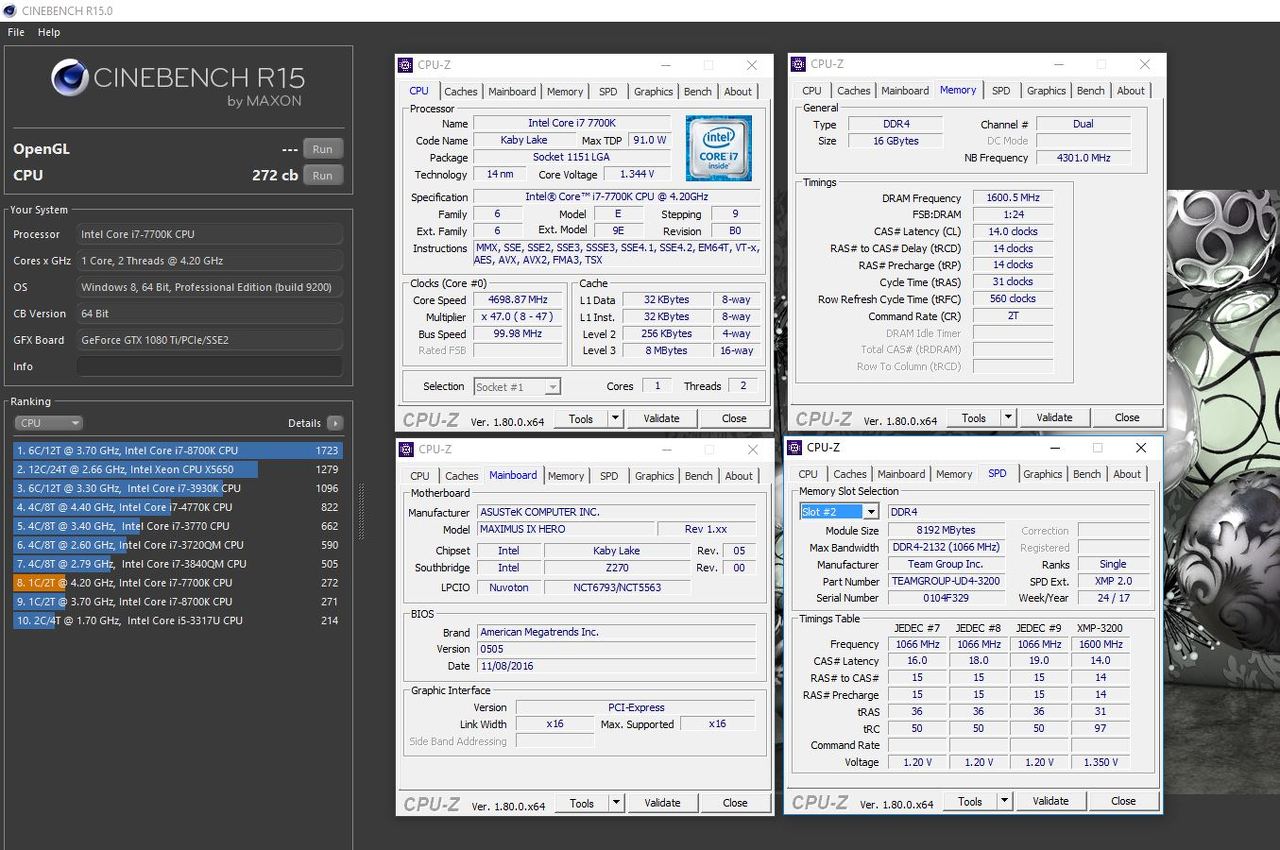
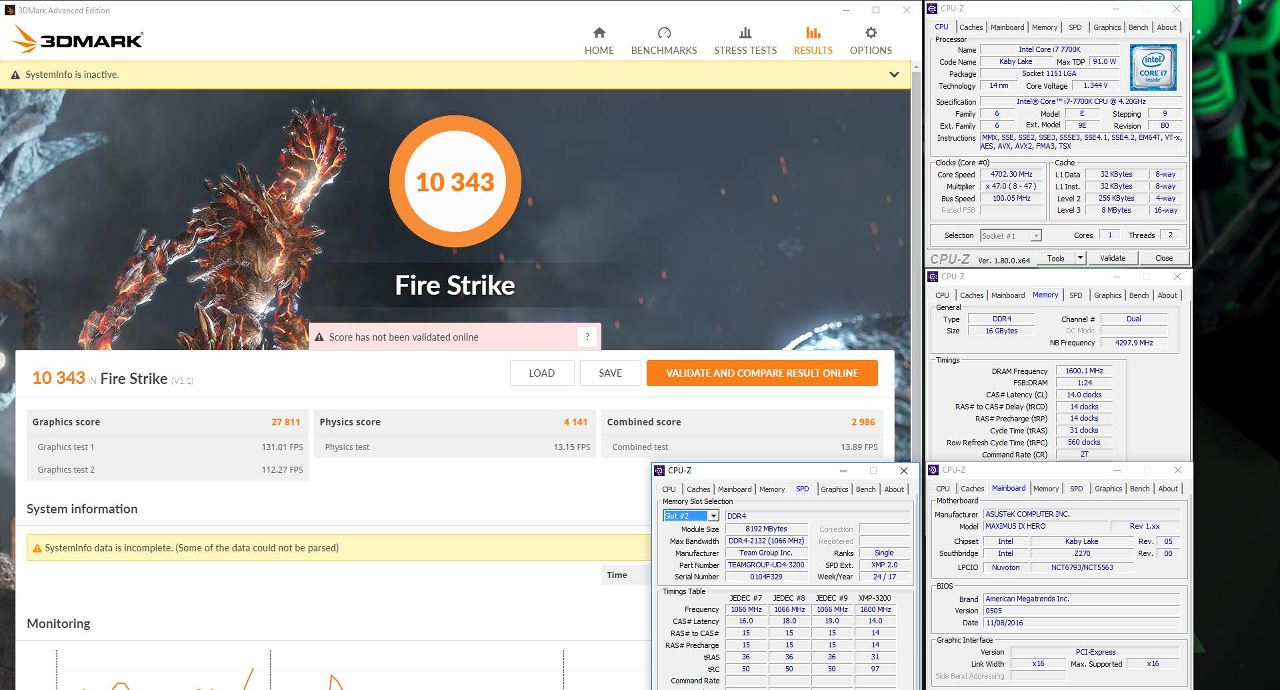
IPC in all my testing exactly the same 8700K vs 7700K
Difference in Mem speeds.
The effect of different memory speeds on benchmarks using XMP and 8Pack Dark Pro mems 3200, 3600 and 4000mhz can be seen here.
3200mhz results
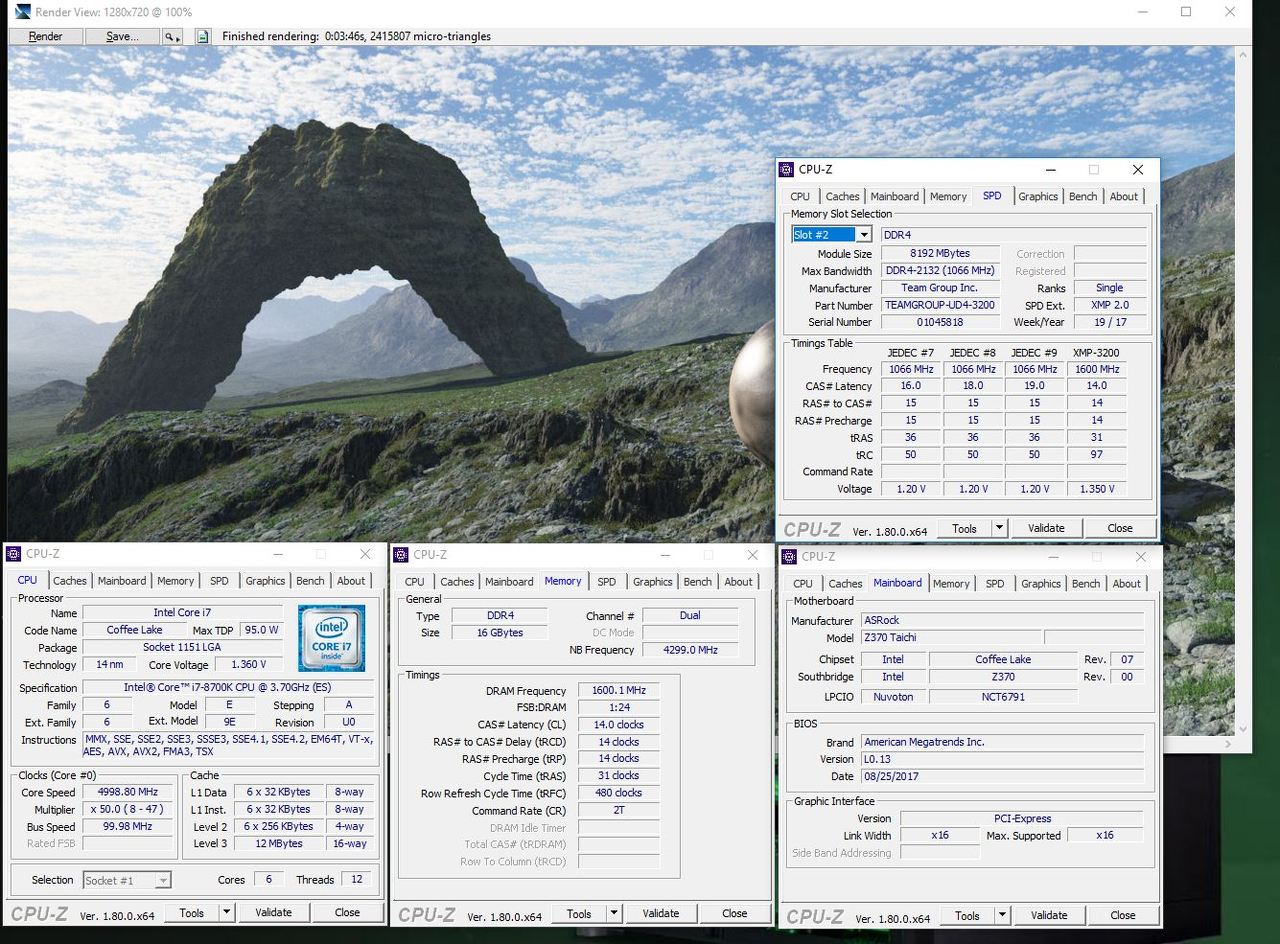
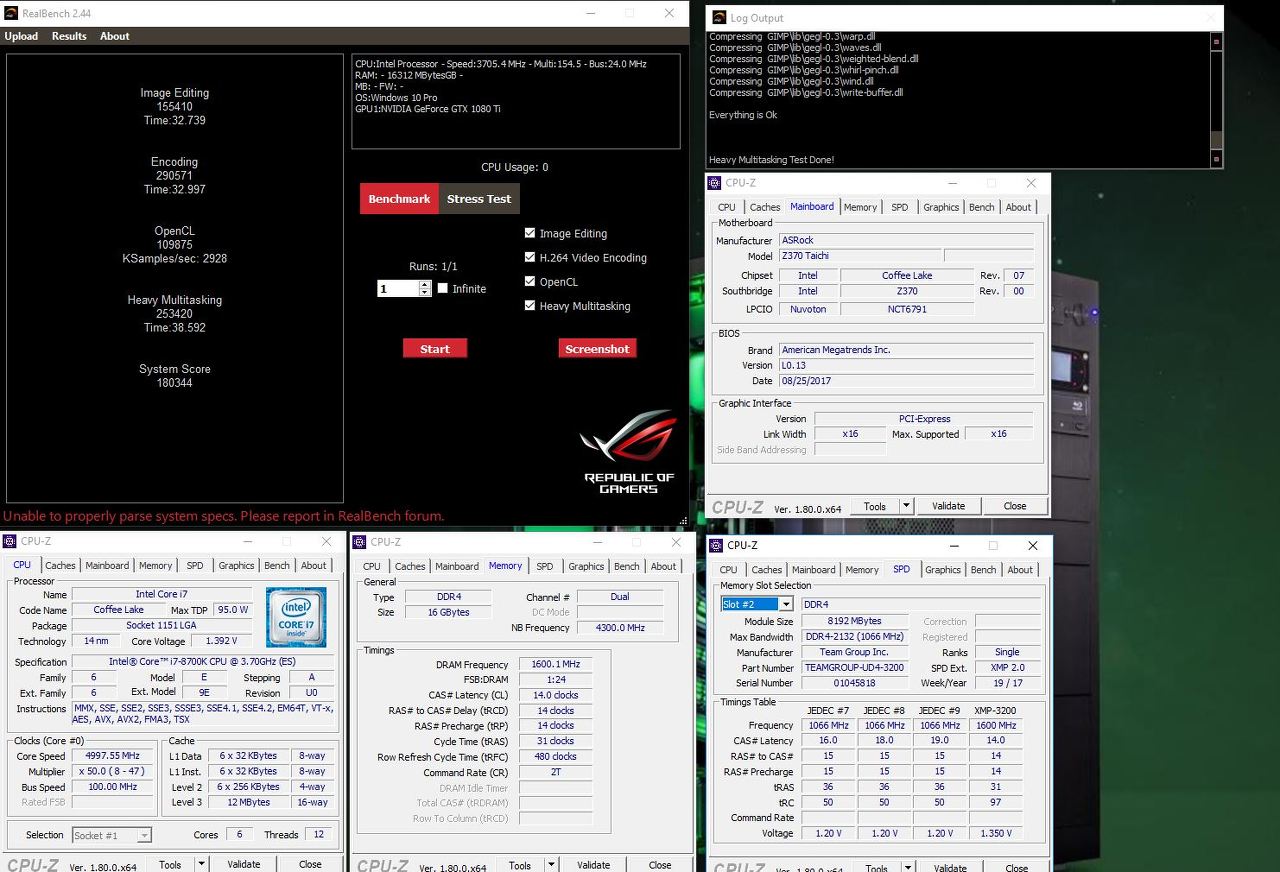
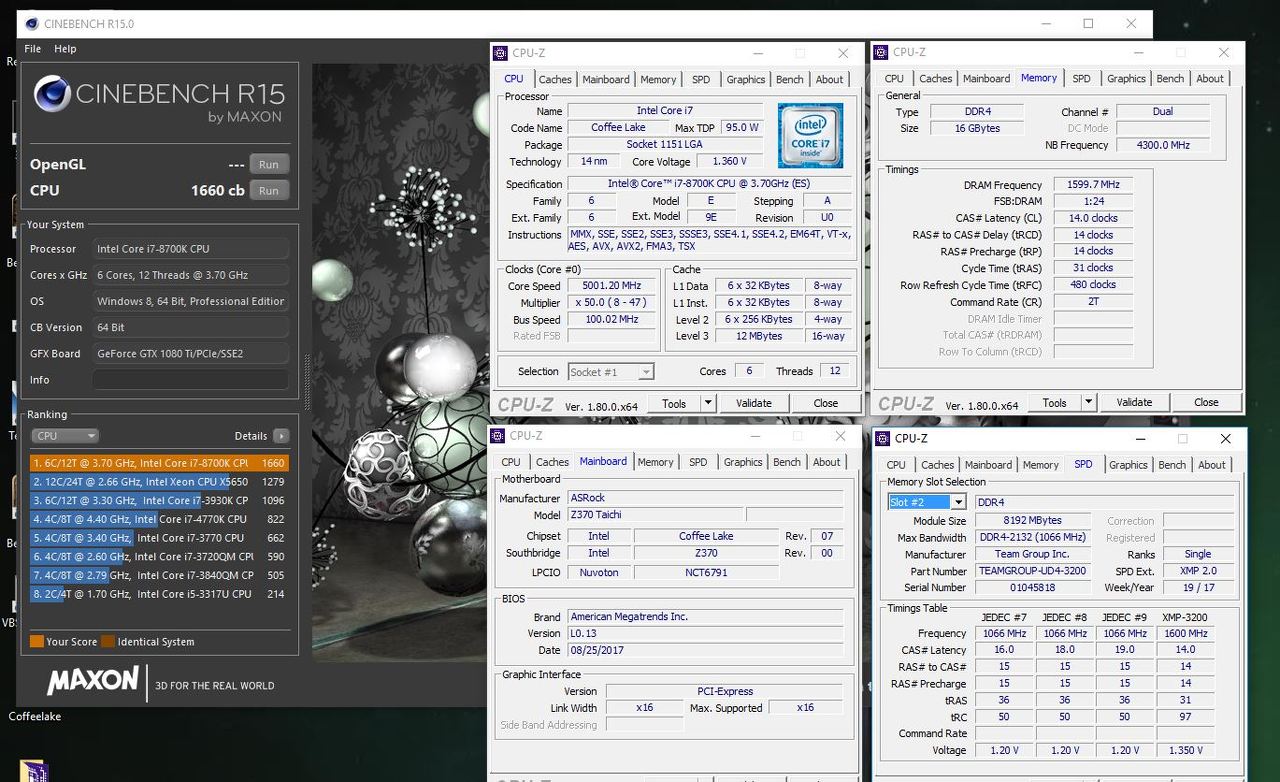
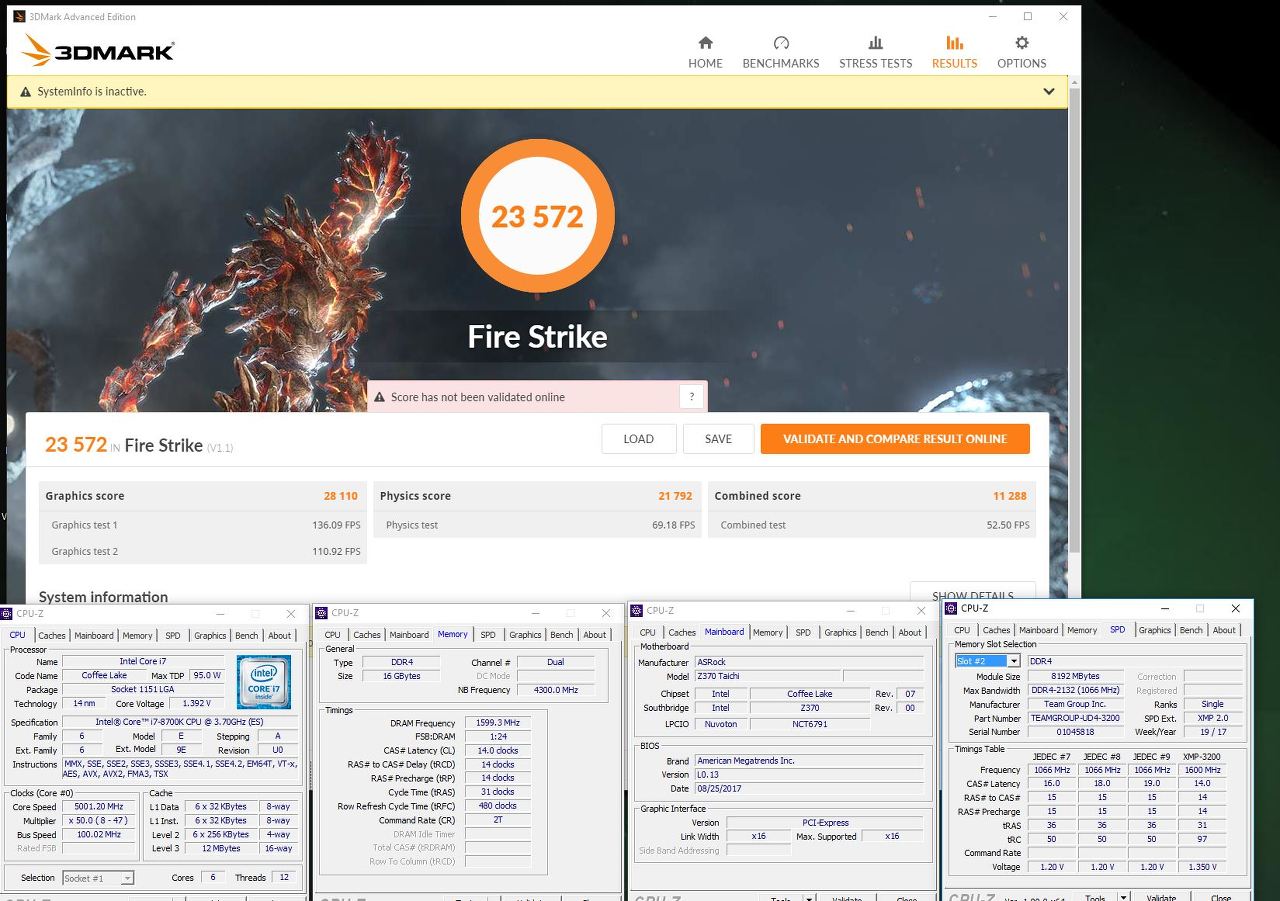
3600mhz results




4000mhz results
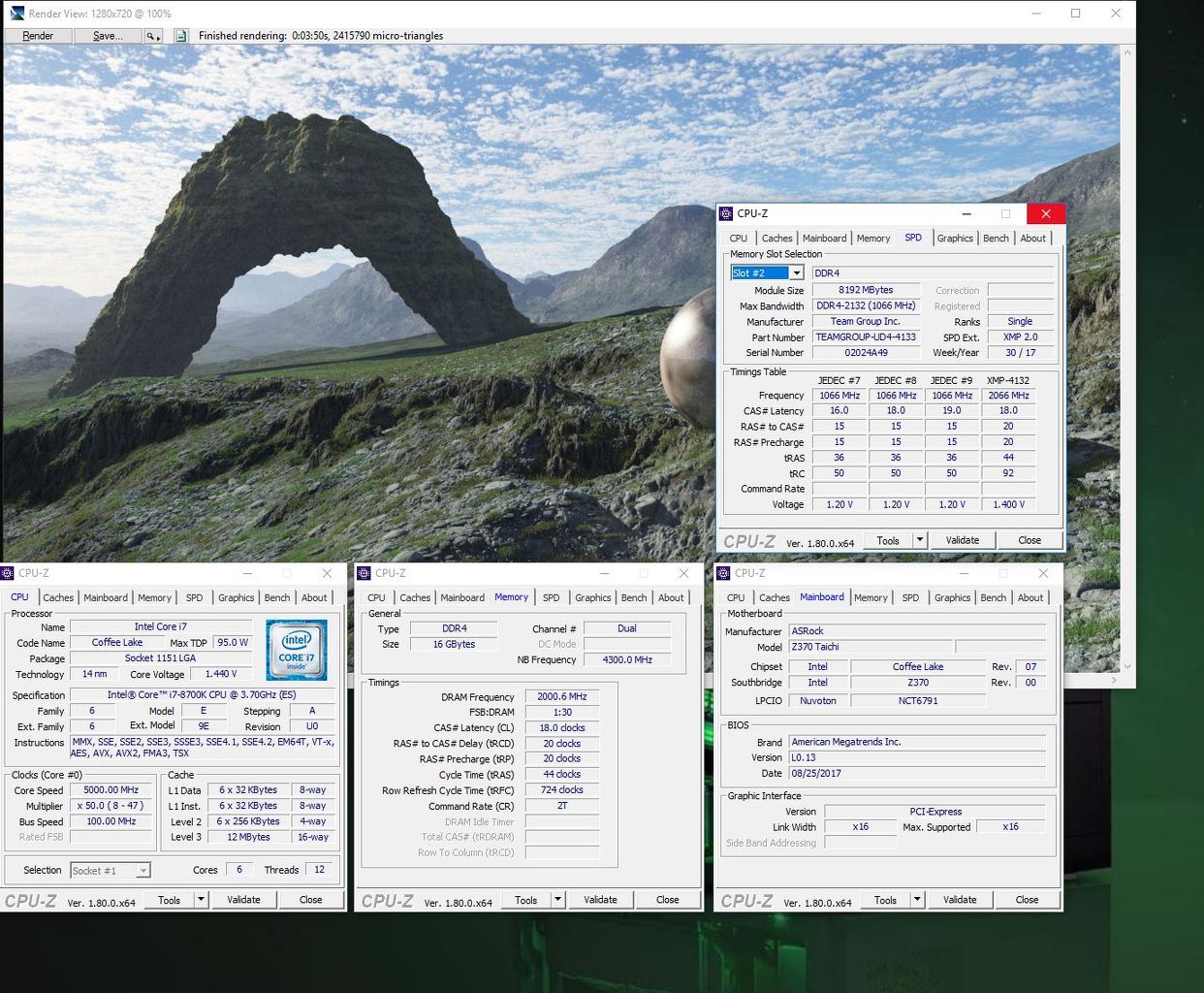
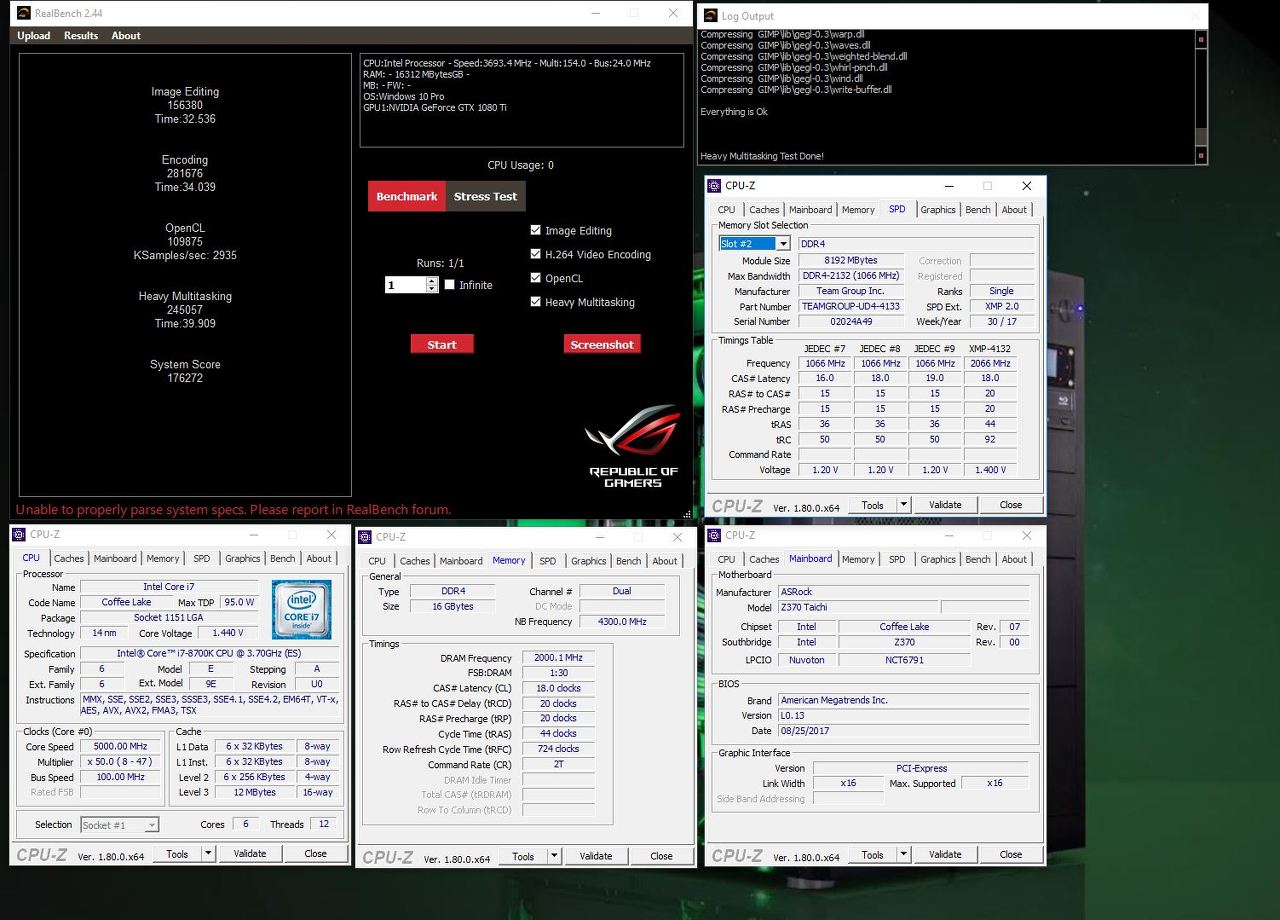
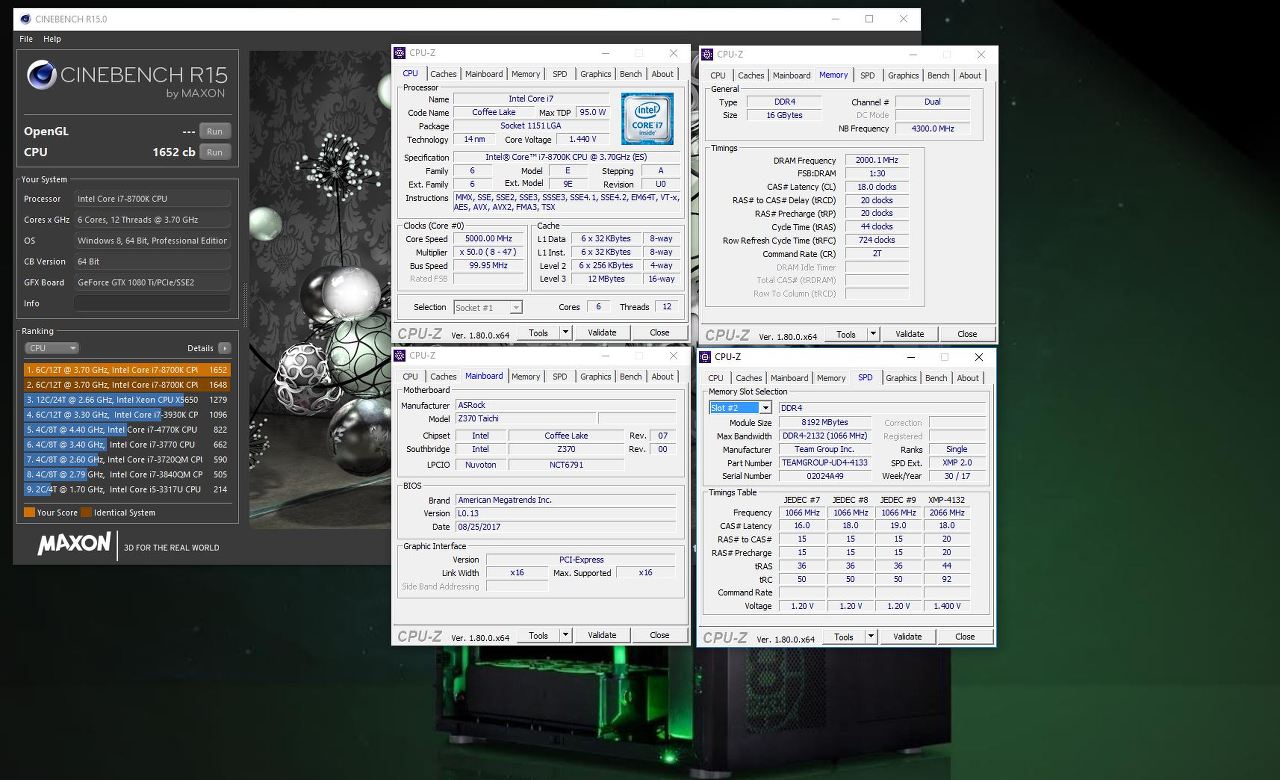
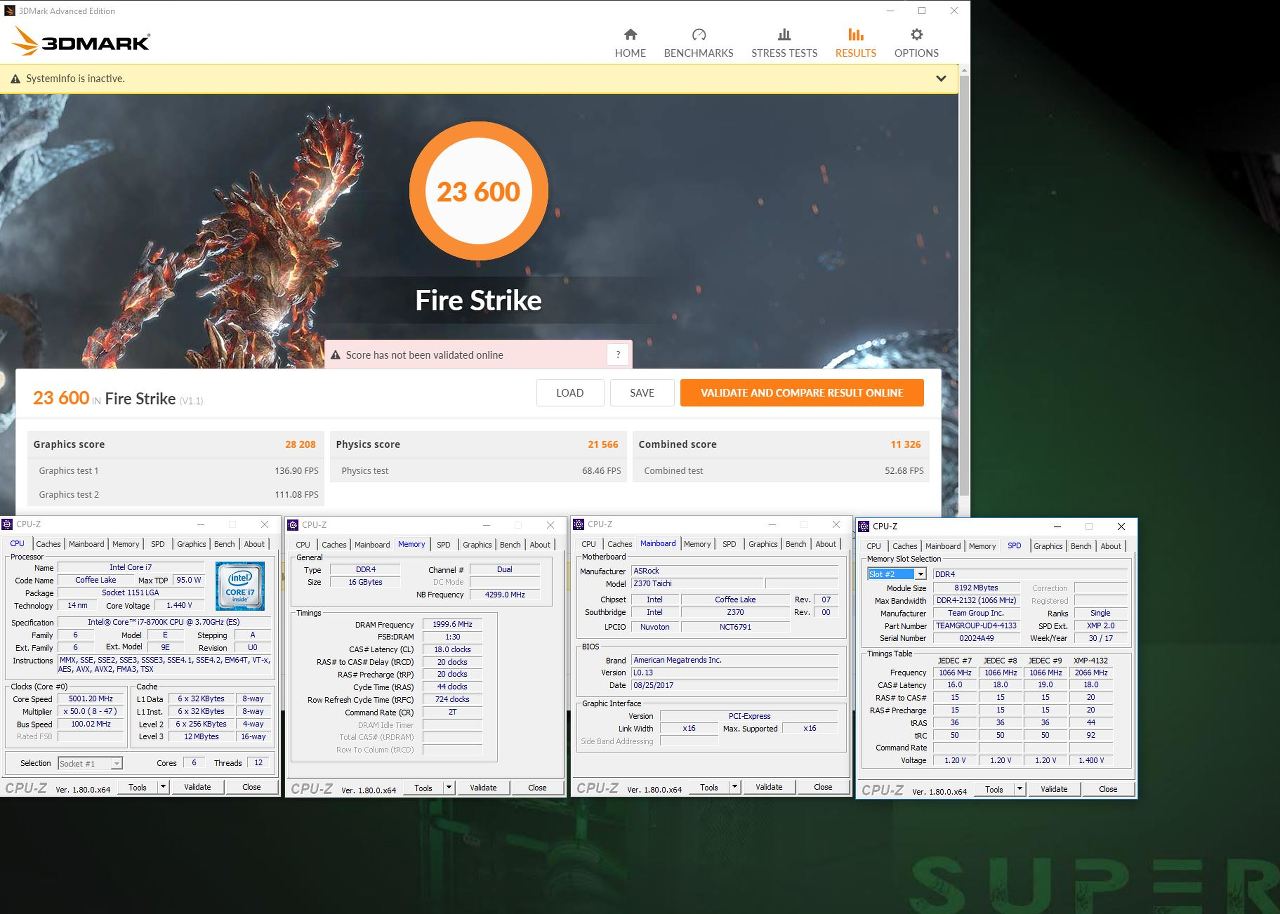
So this testing shows faster RAM has only a very small benefit at XMP. Obviously each application differs and for the enthusiast even the odd percent is worth it. Those who are into RAM tuning can get even further benefit for sure by paying attention to secondary and tertiary timings and tuning each kit in.
For me when overclocking 8700K tune Core then Cache then Memory speed then timings in that order for the best efficiency and performance.
Delidding
So how does Delidding help. Here are some tests with AIO 240 cooler 1hr none AVX testing delid vs none delid CPU. 4.9 1.35v and even 1.4v 5.0ghz with delid IO and SA on both is at 1.05v
First none Delid:
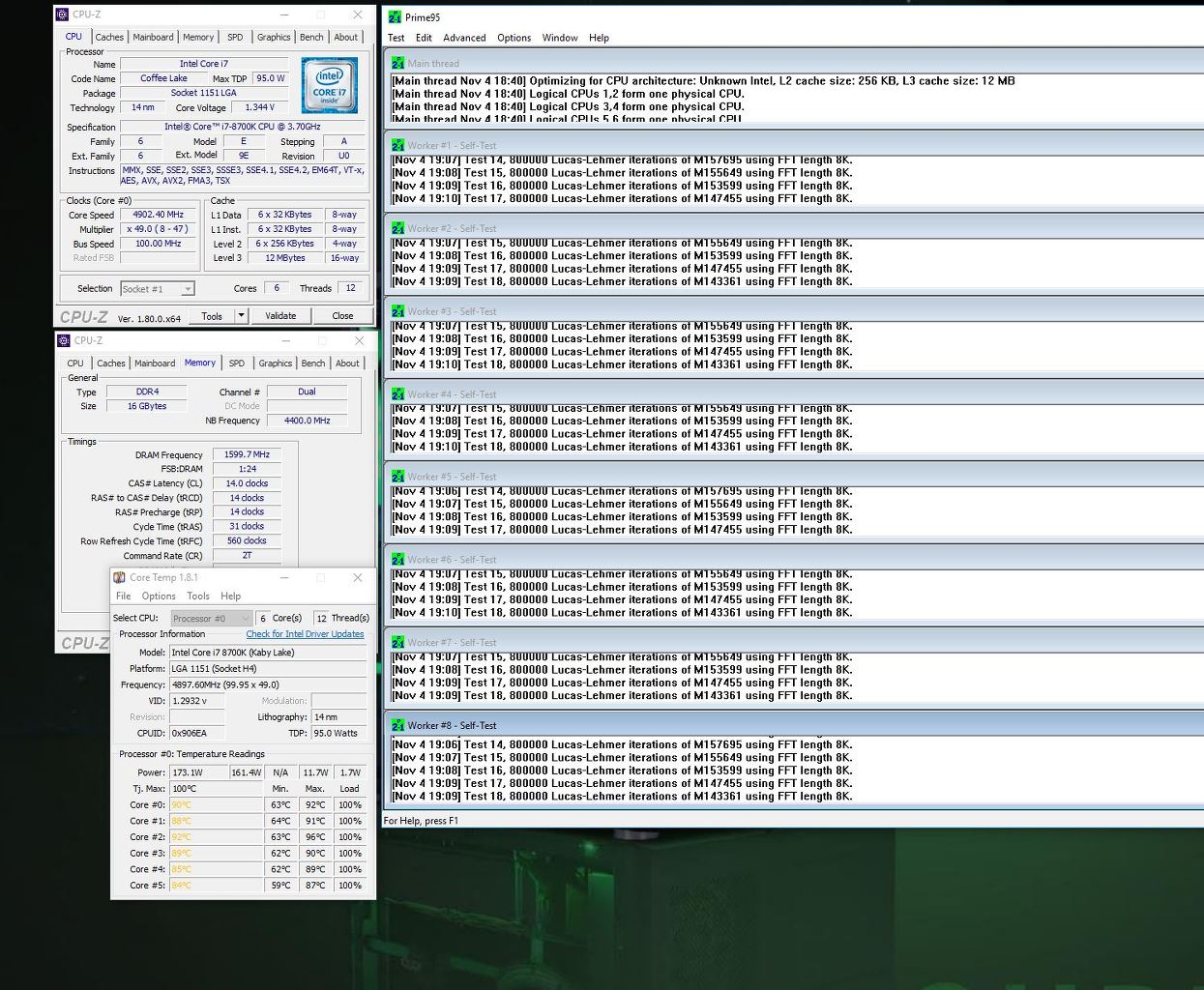
Delided:
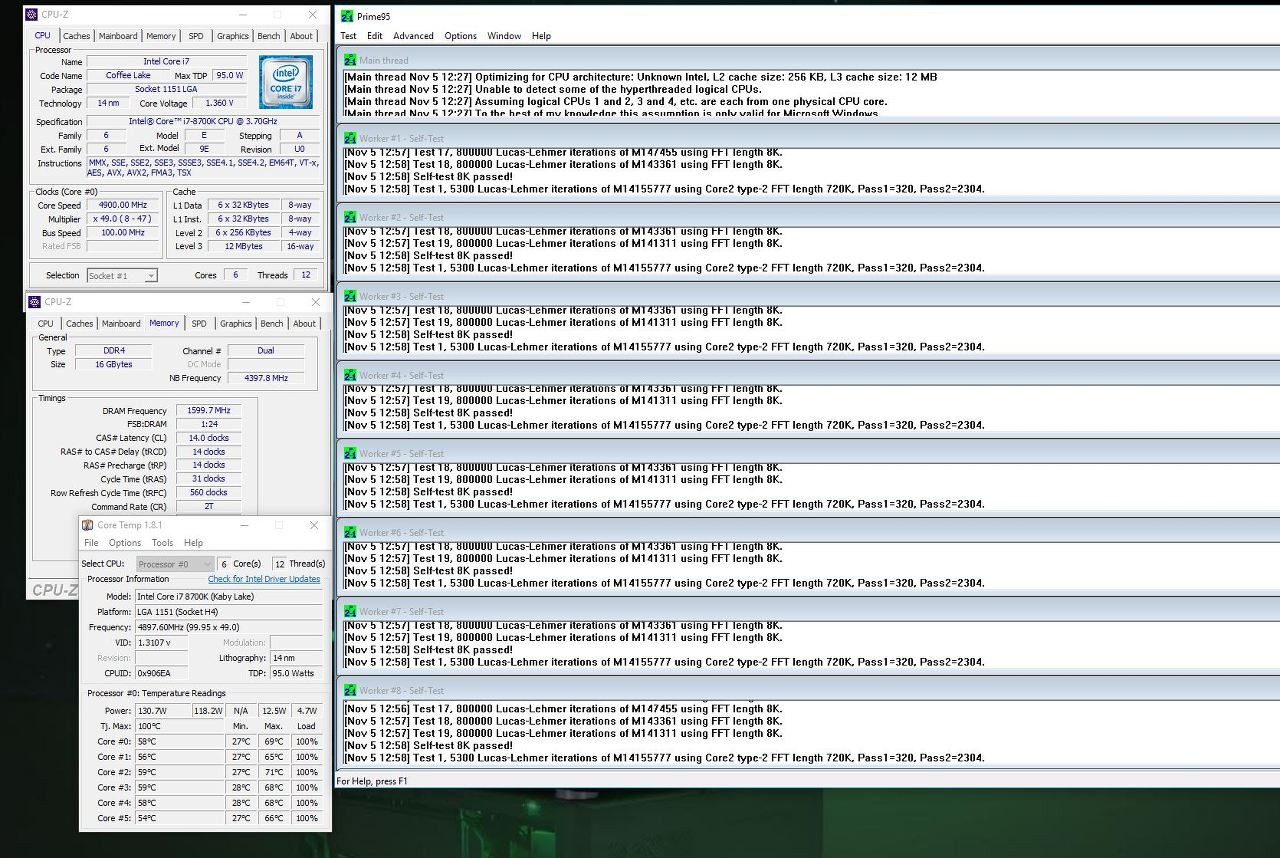
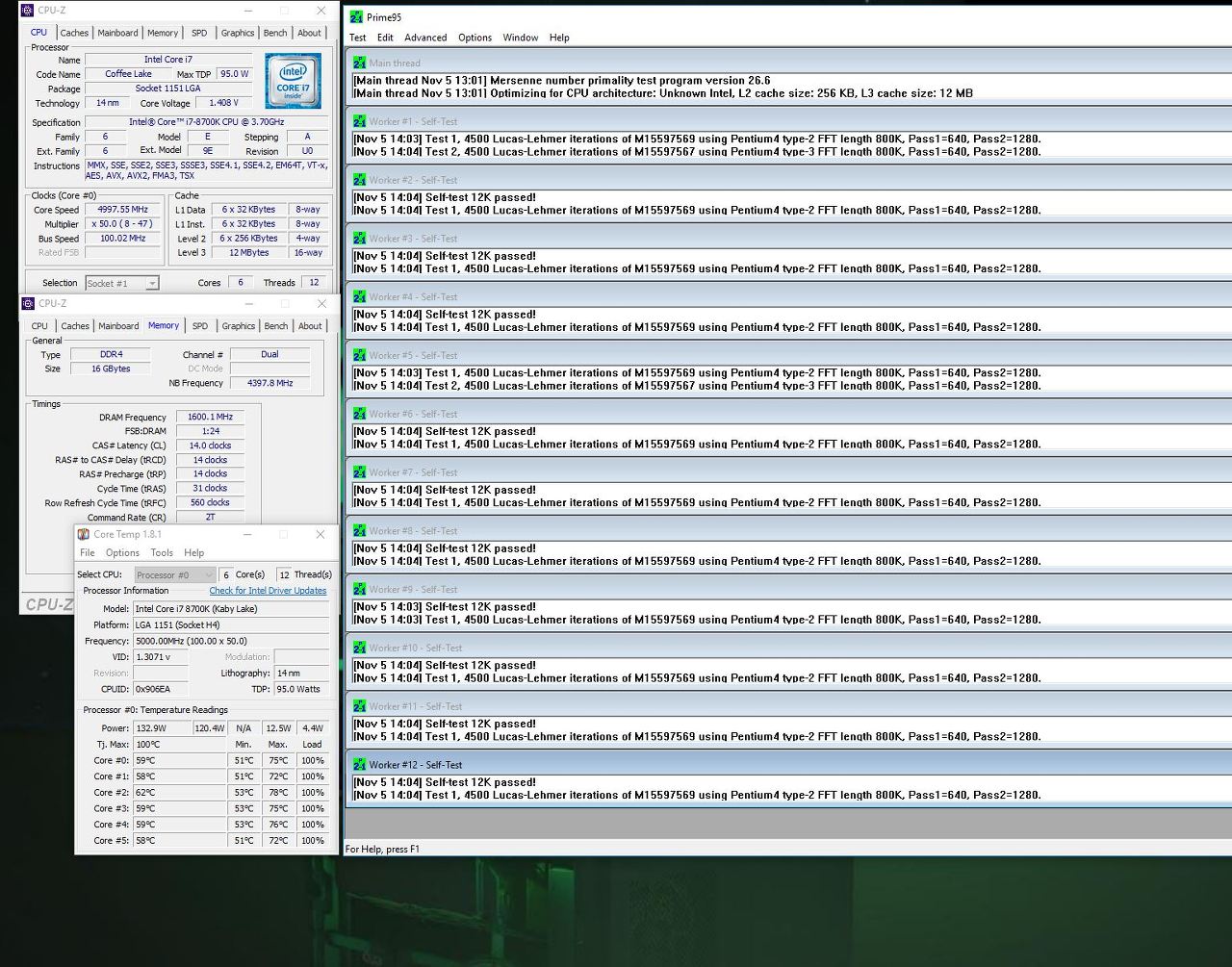
As you can see delid is saving upto 25c per core and at least 20C across all cores.
Here at OCUK we are offering pre delidded CPUs offering similar kind of thermal performance in with pre binned speeds of 5ghz, 5.1ghz and 5.2ghz. The CPUs come with full warranty through OCUK as all our modified CPUs do. All theCPUs run at advertised frequency with 1.35-1.4v through none AVX stress. This is with the Cache at 4400mhz and Memory at 3200mhz C14. With delid we warranty upto 1.425v for 24-7 use. With 1.42v 1.2io 1.2sa none AVX stress you can expect low to mid 80s maximum load on your CPU.
The testing for delid CPUs and binning is done on one of these three boards ASUS Maximus 10 Hero, AsRock Taichi and Gigabyte Gaming7 its recommended you have a board of this quality to give similar results. The minimum cooling for these CPU's is 240 mm AIO with better cooling you may well achieve one bin higher.
Benefits of OC and Binned CPUs
So here the performance benefits through my benches.
Stock
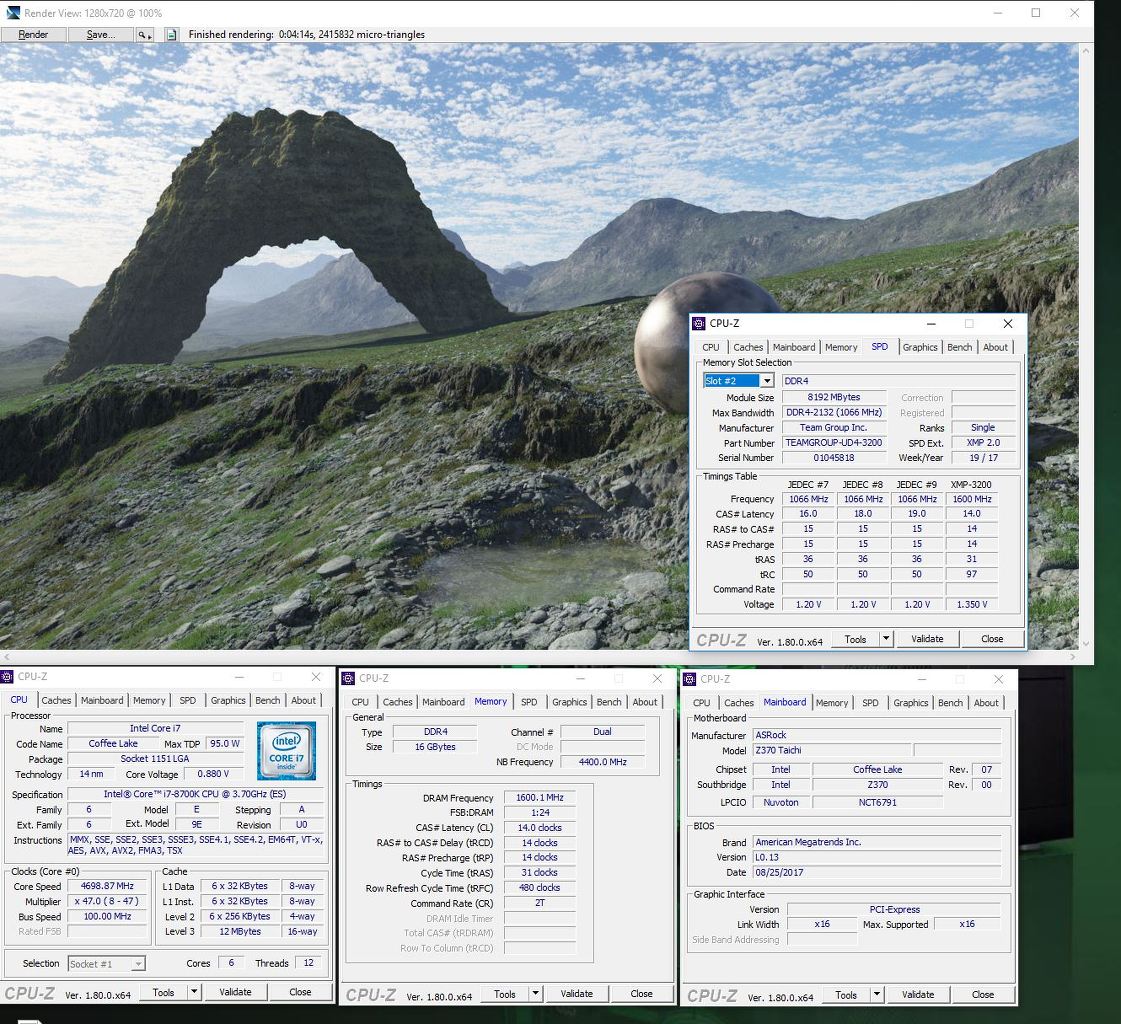
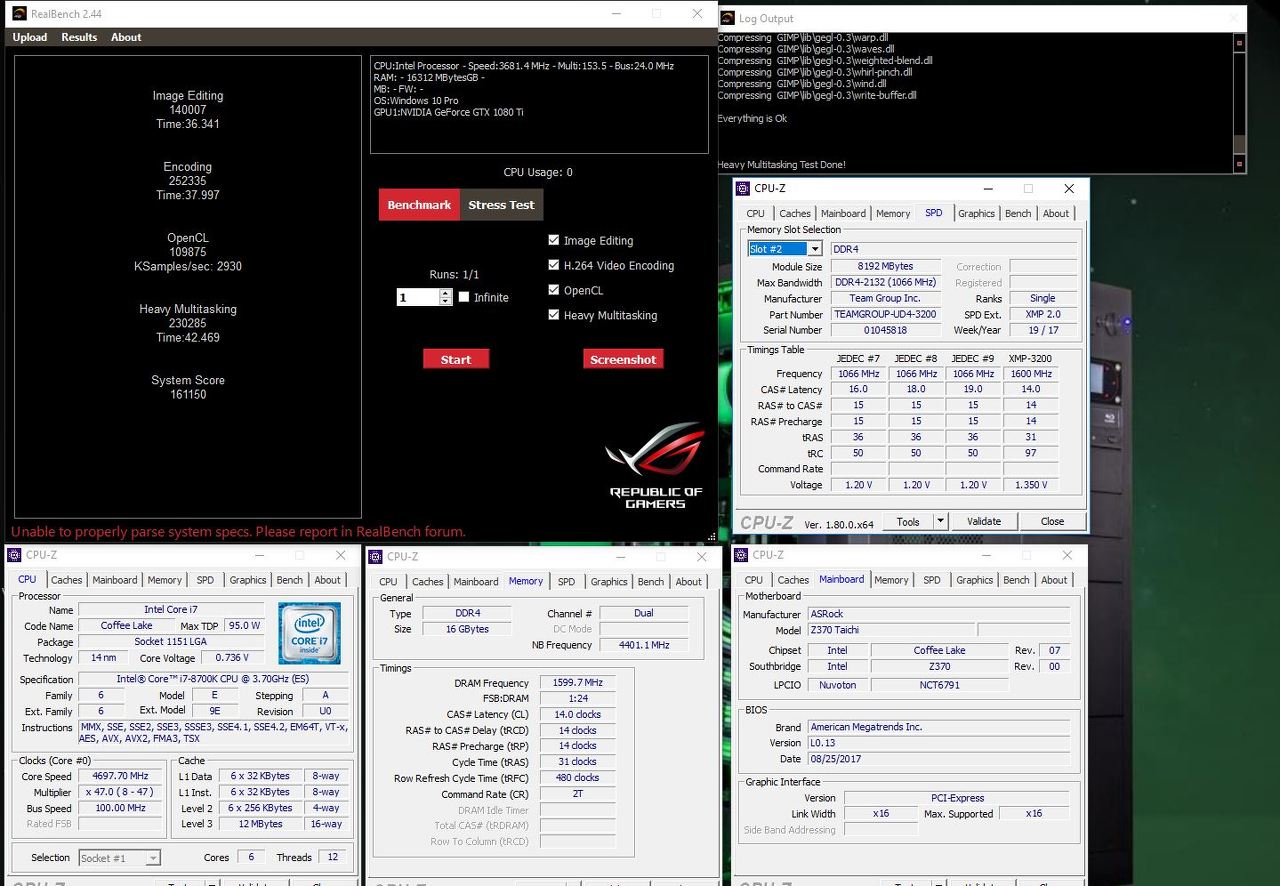
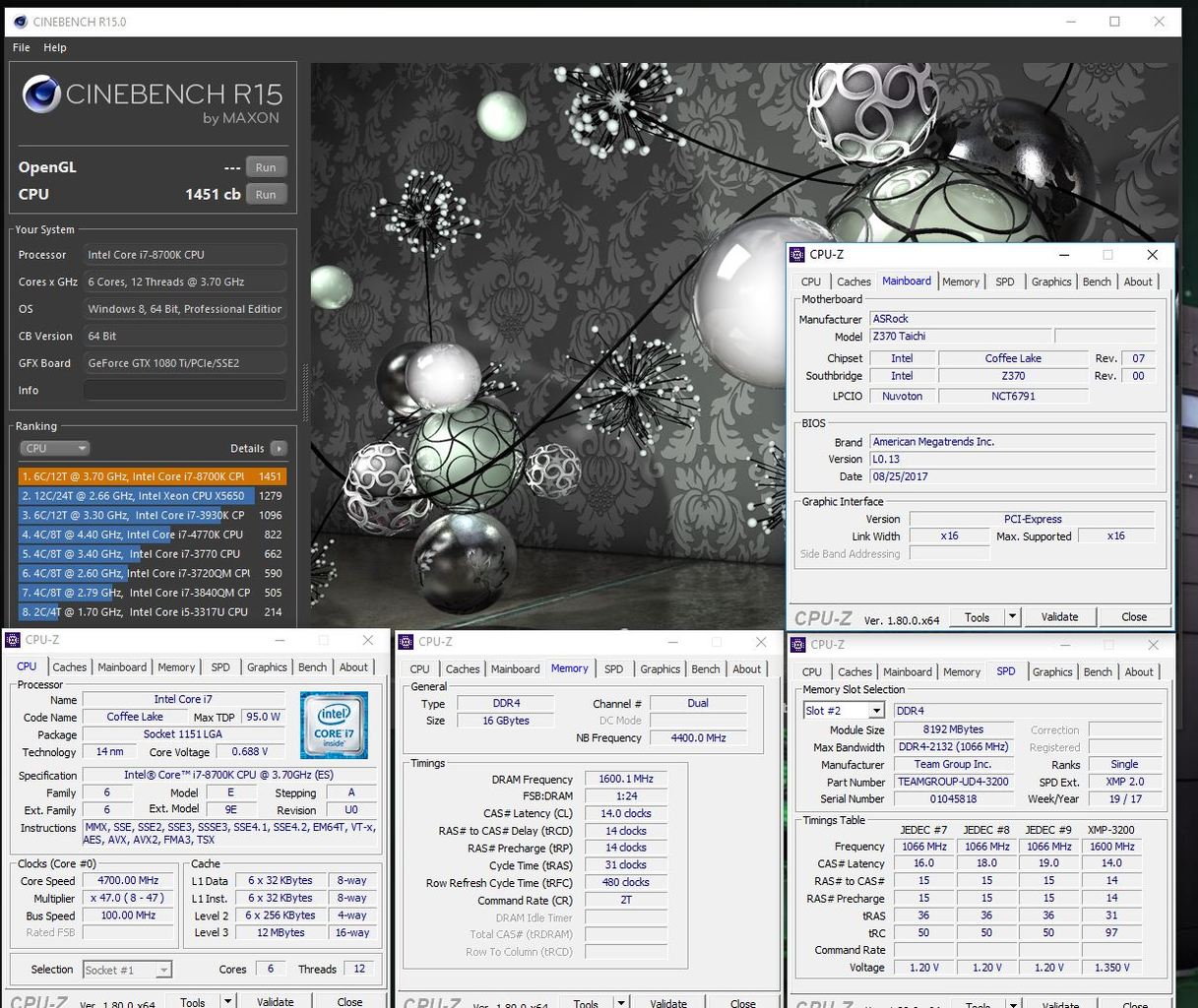
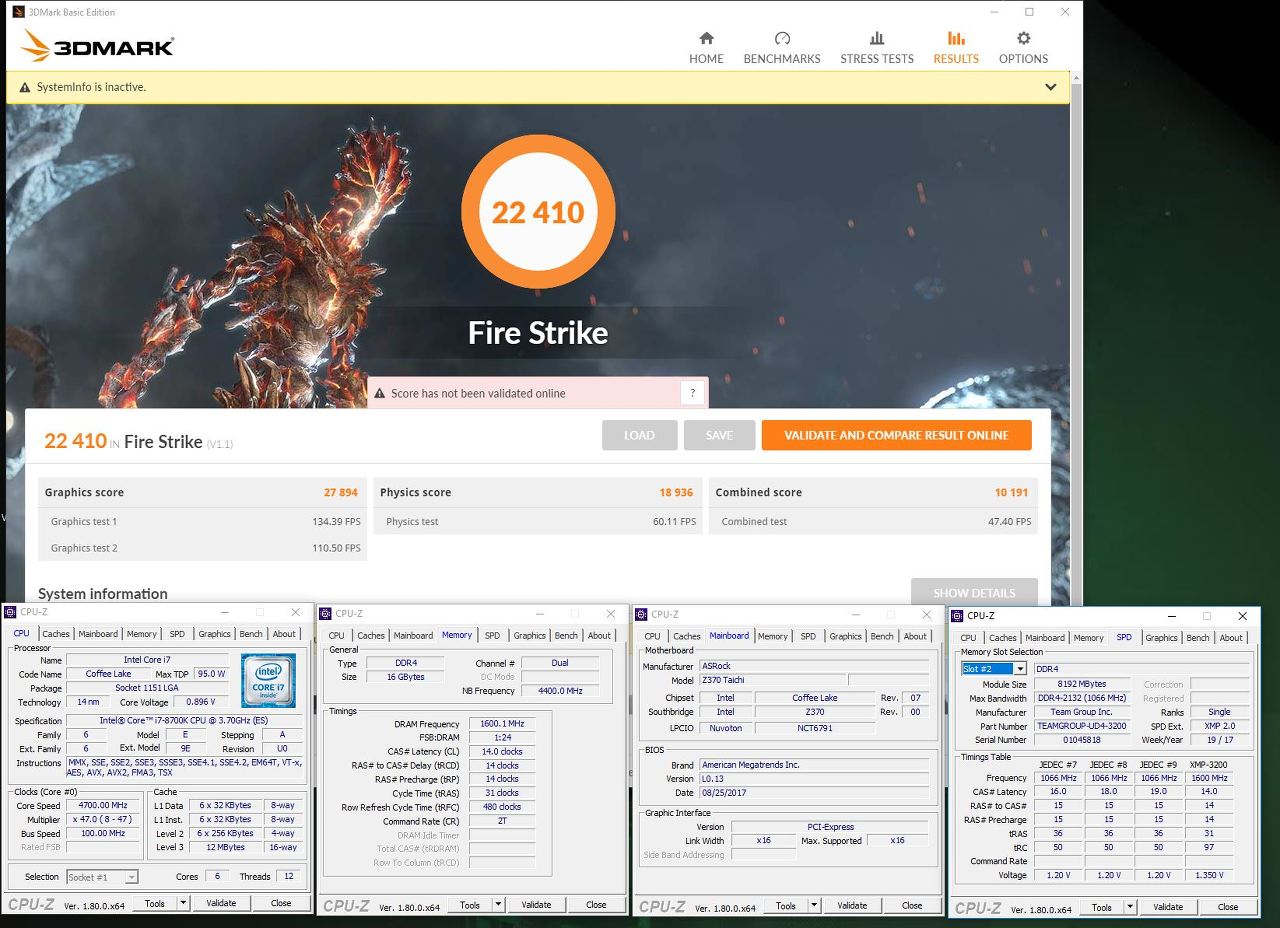
5.0ghz Bin
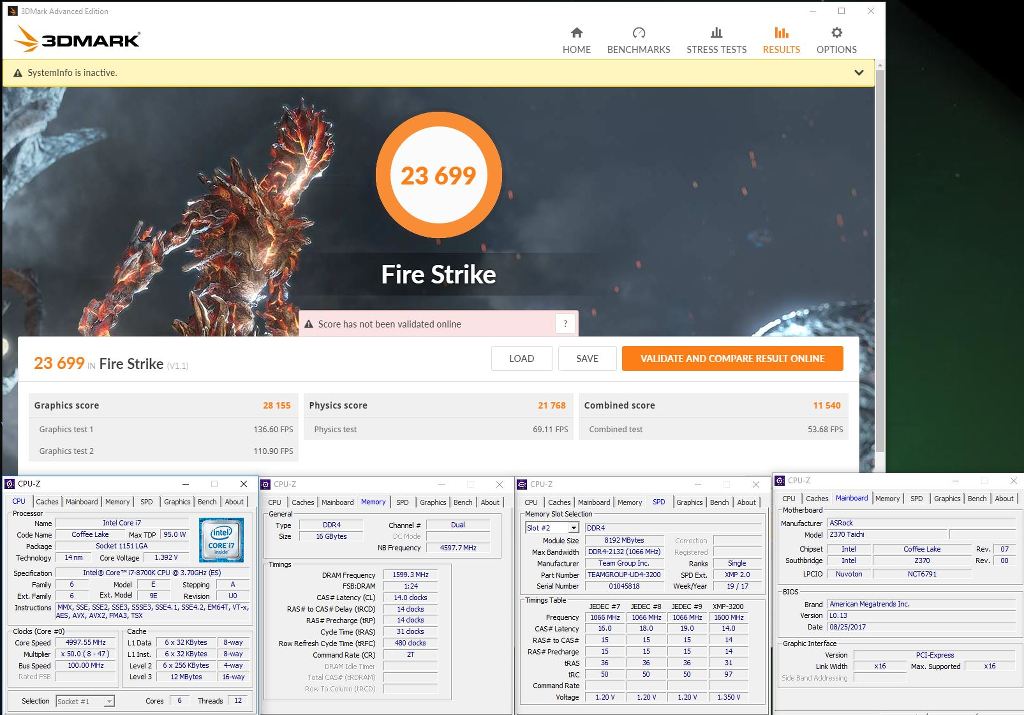
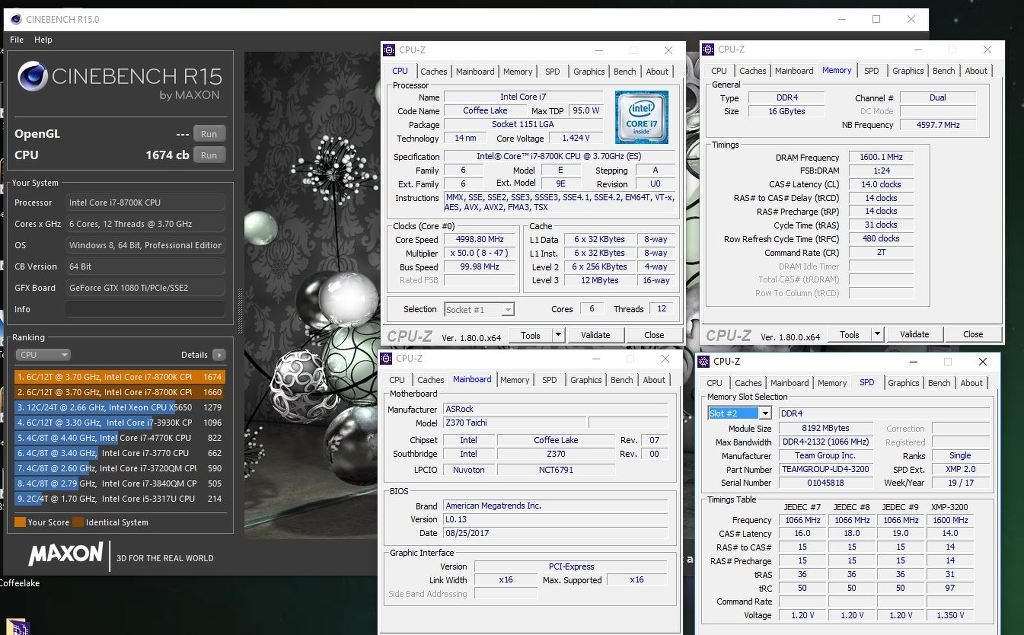
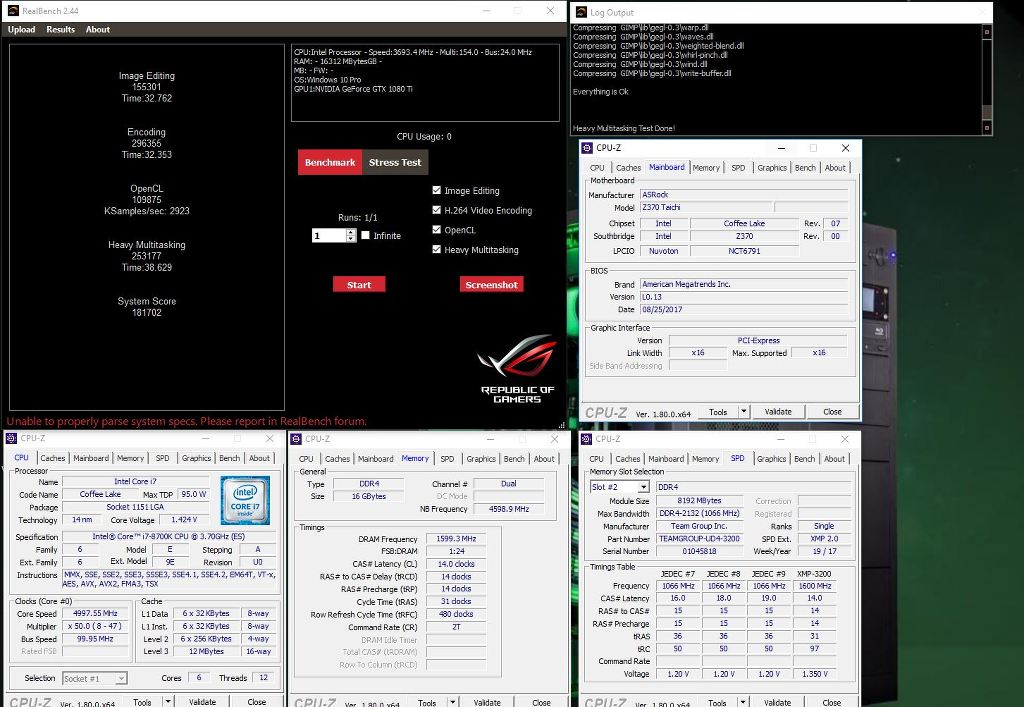
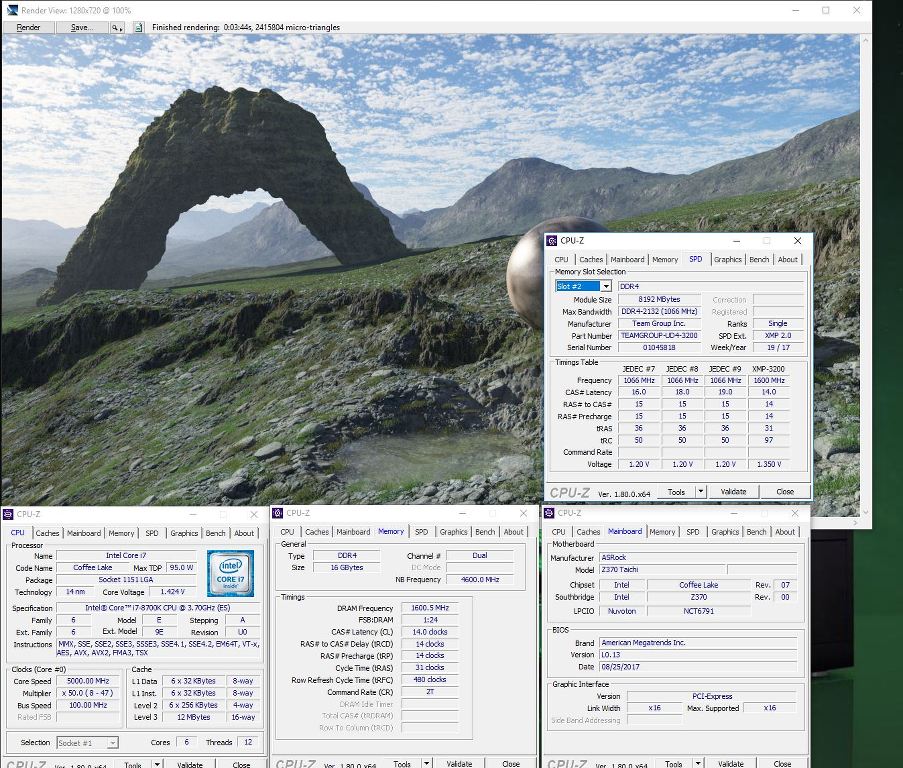
5.2ghz Bin
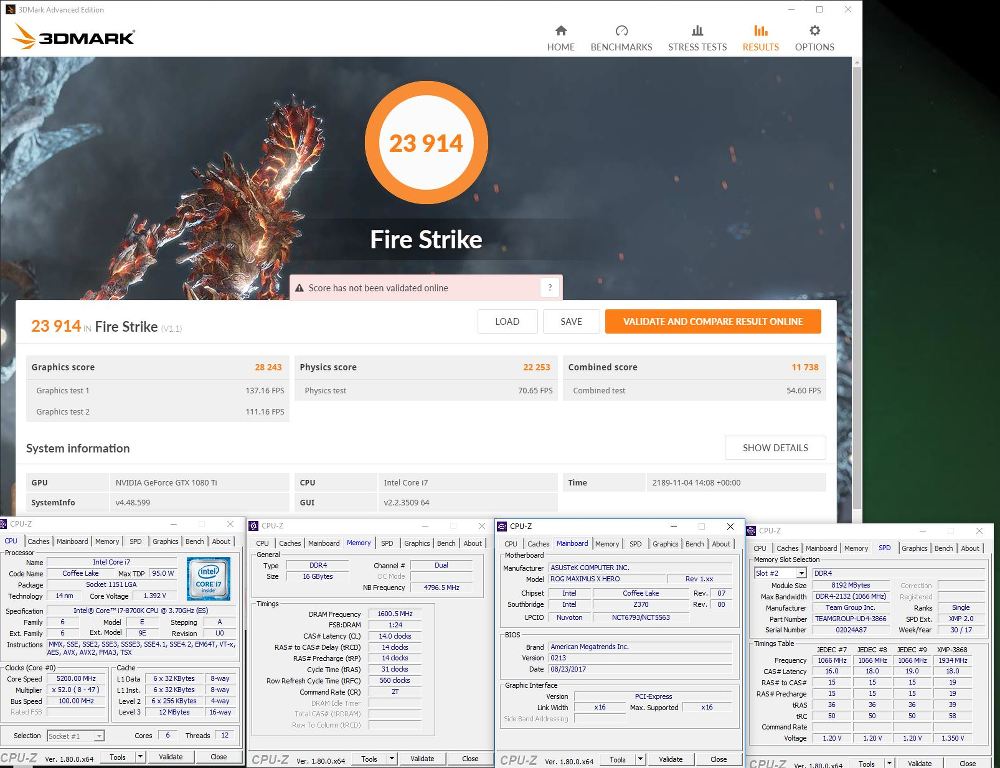
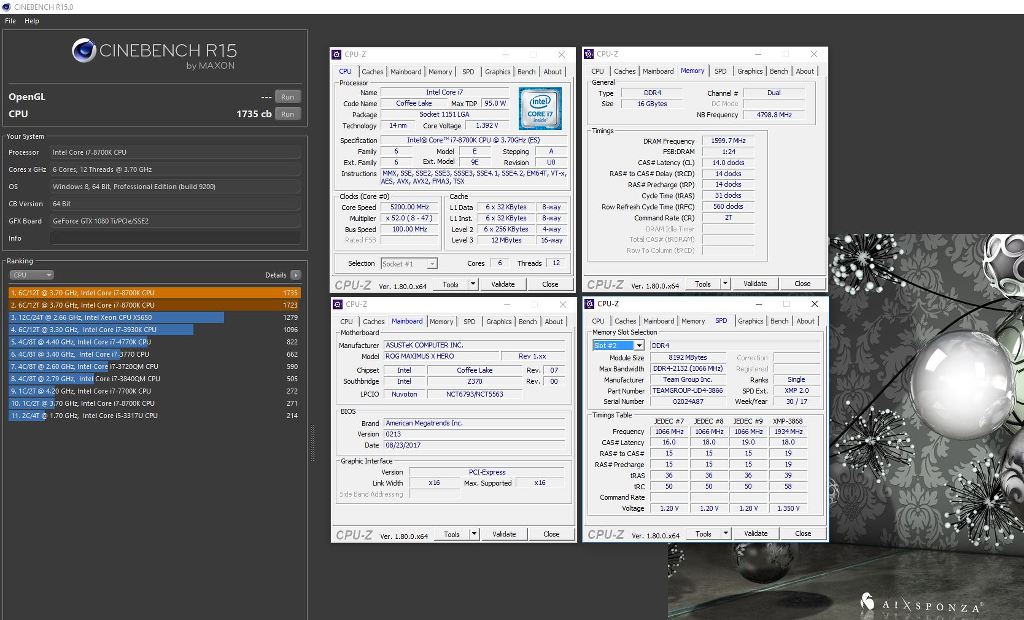
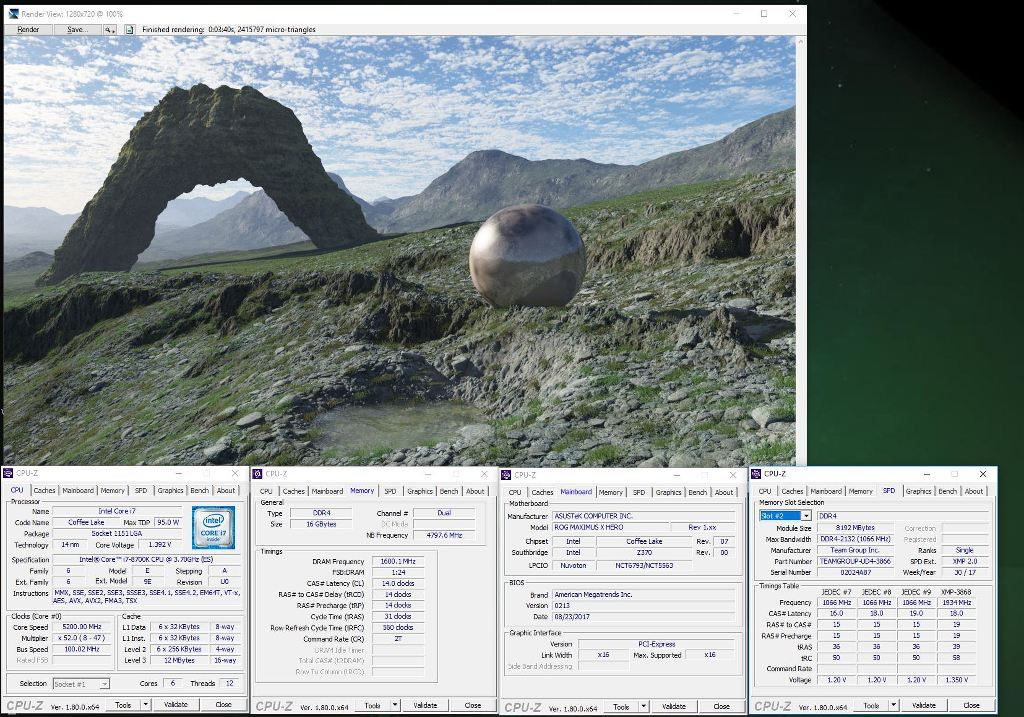
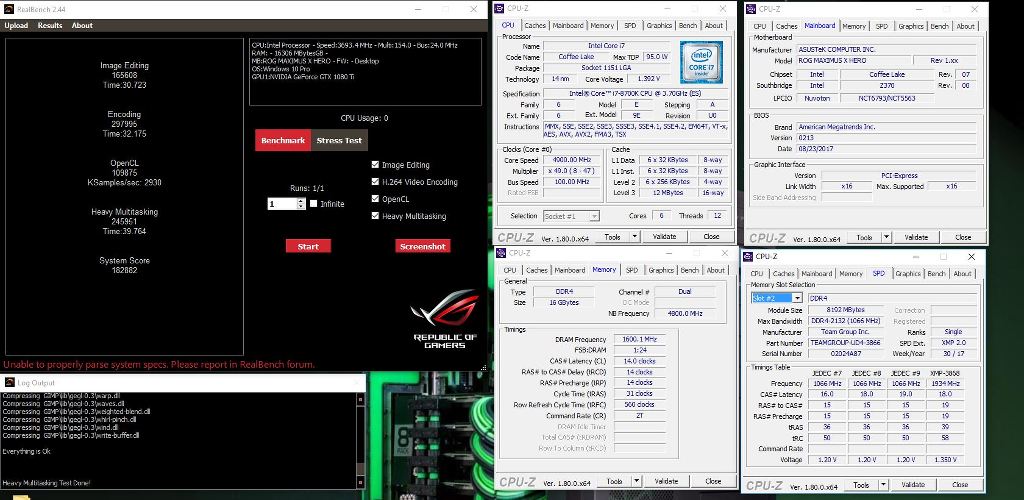
in
So in summary. 8700K is joint king of IPC can clock core a very small amount higher, cache a lot higher and memory very similarly to the already very solid 7700K. It has two more cores and four more threads which lends it in the modern era to a wider variety of applications to the previous generation CPU.
If you have any questions about this thread post back here.
The Video covering this testing can be found here
https://www.youtube.com/watch?v=SSKLAaCyD2Y
Here is where to get your binned CPU's
https://www.overclockers.co.uk/pc-components/processors/intel/socket-1151-coffee-lake
Just to clarify so I don't need to type it 100 times non AVX stress testing for me is one hour Prime version 25 or 26 and one hour Real Bench.
All screenshots using AsRock Taichi as the board are when I had an early Bios with a poor LLC curve. So CPUZ reading 1.45 is actually 1.4v under heavy load. Later Bios fixed this issue.
Screenshots with Maximus 10 Hero are correct CPUZ voltage to what was actually being used.
Benches are Real Bench, Terragen, Cinebench R15 and Firestrike.
Overclocking 8700K on low end Air Cooler like Cooler Master EVO 4.7-4.8ghz is possible on average silicon this is because max voltage you can use for non avx stress testing is around 1.225v before temps are late 80 degree C using stock TIM. Cache and mems cant really be pushed on this type of cooling as SA IO volts add to heat output. Cache really goes high on 8700K but in my testing only with voltages around 1.35v+ which is not possible on this type of cooler.
Overclocking 8700K on 240mm AIO like Asetek 240mm 4.8-4.9ghz is possible on average silicon this is because max voltage you can use for non avx stress testing is around 1.28v before temps are late 80 degree C using stock TIM. Cache and mems cant really be pushed on this type of cooling as SA IO volts add to heat output. Cache really goes high on 8700K but in my testing only with voltages around 1.35v+ which is not possible on this type of cooler.
Overclocking in general
Core - In my testing of many retail CPUs I have found 8700K core OC to be very similar to 7700K OC on the same cooling. If its better its only 100mhz absolute tops better.
Cache- In my testing Cache is better on the 8700K compared to 7700K by at least two ratio. When you can use higher voltages with delid of 1.35v+ then Cache on these CPU can go 4.8-5ghz which improves the efficiency in many tasks equivalent to upto 200mhz CPU clocks. Most 7700K with similar voltages and stress testing liked cache a good 400mhz less.
Memory- Memory OC is very much the same as Z370. 4 Dimm boards are topping out 3866-4000mhz. Good Samsung IC on certain boards doing a little better with good IMC on an Individual CPU. 2 DIMM boards can hit 4266mhz stable without issue but this was the same on Z370. I recommend 8Pack Team Group range as they are all Samsung based IC and can clock very high at tight timings. With even 3200mhz Bin being able to do 3866mhz- 4K C18-C19 in many cases.
Many vendors have SA and IO voltages set too high for compatability with the worsed IMC's this adds to temperatures and is unnecessary. I suggest 1.05-1.125v for 3200mhz , 1.10-1.15 for 3600mhz and upto 1.2v for 4000mhz. Of Course some IMC need higher for stability but this will cost 3-6C in Core temps. So pay attention to these voltages and tune accordingly.
IPC 8700k vs 7700K
I set the CPUs to the same clocks, 1c 2t and let them rip in several benches:
8700K IPC




7700K IPC




IPC in all my testing exactly the same 8700K vs 7700K
Difference in Mem speeds.
The effect of different memory speeds on benchmarks using XMP and 8Pack Dark Pro mems 3200, 3600 and 4000mhz can be seen here.
3200mhz results




3600mhz results




4000mhz results




So this testing shows faster RAM has only a very small benefit at XMP. Obviously each application differs and for the enthusiast even the odd percent is worth it. Those who are into RAM tuning can get even further benefit for sure by paying attention to secondary and tertiary timings and tuning each kit in.
For me when overclocking 8700K tune Core then Cache then Memory speed then timings in that order for the best efficiency and performance.
Delidding
So how does Delidding help. Here are some tests with AIO 240 cooler 1hr none AVX testing delid vs none delid CPU. 4.9 1.35v and even 1.4v 5.0ghz with delid IO and SA on both is at 1.05v
First none Delid:

Delided:


As you can see delid is saving upto 25c per core and at least 20C across all cores.
Here at OCUK we are offering pre delidded CPUs offering similar kind of thermal performance in with pre binned speeds of 5ghz, 5.1ghz and 5.2ghz. The CPUs come with full warranty through OCUK as all our modified CPUs do. All theCPUs run at advertised frequency with 1.35-1.4v through none AVX stress. This is with the Cache at 4400mhz and Memory at 3200mhz C14. With delid we warranty upto 1.425v for 24-7 use. With 1.42v 1.2io 1.2sa none AVX stress you can expect low to mid 80s maximum load on your CPU.
The testing for delid CPUs and binning is done on one of these three boards ASUS Maximus 10 Hero, AsRock Taichi and Gigabyte Gaming7 its recommended you have a board of this quality to give similar results. The minimum cooling for these CPU's is 240 mm AIO with better cooling you may well achieve one bin higher.
Benefits of OC and Binned CPUs
So here the performance benefits through my benches.
Stock




5.0ghz Bin




5.2ghz Bin




in
So in summary. 8700K is joint king of IPC can clock core a very small amount higher, cache a lot higher and memory very similarly to the already very solid 7700K. It has two more cores and four more threads which lends it in the modern era to a wider variety of applications to the previous generation CPU.
If you have any questions about this thread post back here.
The Video covering this testing can be found here
https://www.youtube.com/watch?v=SSKLAaCyD2Y
Here is where to get your binned CPU's
https://www.overclockers.co.uk/pc-components/processors/intel/socket-1151-coffee-lake

